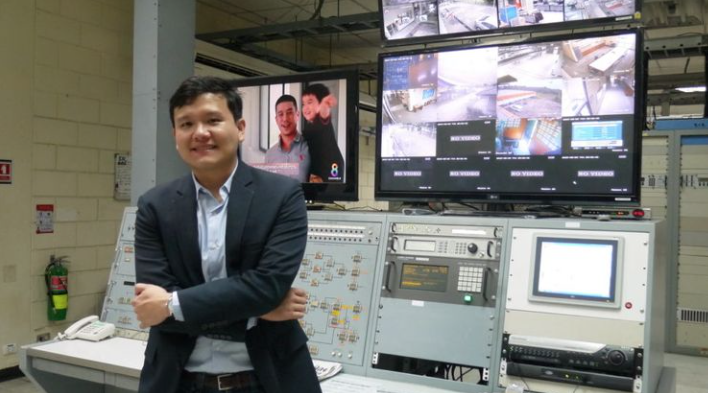Thailand’s first space technology startup mu Space Corp plans to raise over 300 million baht ($9.2 million) this year for its business development and expansion, founder and CEO James Yenbamroong told DEALSTREETASIA.
The fundraising round is planned after it received a license from the National Broadcasting and Telecommunications Commission last month to launch its geostationary satellite and provide satellite-based services until 2032, making it Thailand’s first space technology startup to do so.

mu Space’s chief executive officer and founder James Yenbamroong
“We are still looking for a funding partner for the new fundraising. This year, we are looking at providing nationwide service in Thailand and expanding our coverage in neighbouring countries, particularly Cambodia, Laos, Myanmar and Vietnam. As the company gears up for expansion, we plan to grow the team to a minimum of 50 people in 2018. We’ll be hiring more engineers and other experts from different backgrounds,” Yenbamroong explained.
Yenbamroong, 33, studied aerospace and mechanical engineering at the University of California. After university, he was a project lead for unmanned vehicle systems at Northrop Grumman. After years of working in the US, he decided to move back to Thailand to pursue his passion and set up mu Space.
mu Space was founded by Yenbamroong in partnership with a private Thai company in August last year with a registered capital of over 100 million baht ($3 million). Aside from providing satellite communication, another service Yenbamroong is looking at offering is space tourism.
“Currently, Blue Origin, SpaceX and Virgin Galactic are leading the space tourism industry. However, none of them is based in Asia. That’s why I decided to go with this business; I want to be the first in Asia. Having our head office in Thailand is just perfect for the business because the country is a famous tourist destination worldwide,” Yenbamroong added.
Space tourism currently is expensive and viable only for those who have the money and the passion to explore space. Yenbamroong says in the future, the service will be available to more people as reusable rockets, like what Blue Origin and SpaceX are developing, will lower the cost of flying to space.
“With the space industry worldwide predicted to be worth $2.7 trillion in the next 30 years, we will join the space race with the launch of our own satellite in 2021 using Blue Origin’s launch rocket. We also plan to offer space tourism to customers in Asia within the next decade,” he added.
In September 2017, mu Space became Blue Origin’s first Asian customer by signing a partnership agreement to launch its first geostationary satellite aboard the latter’s New Glenn orbital rocket.


